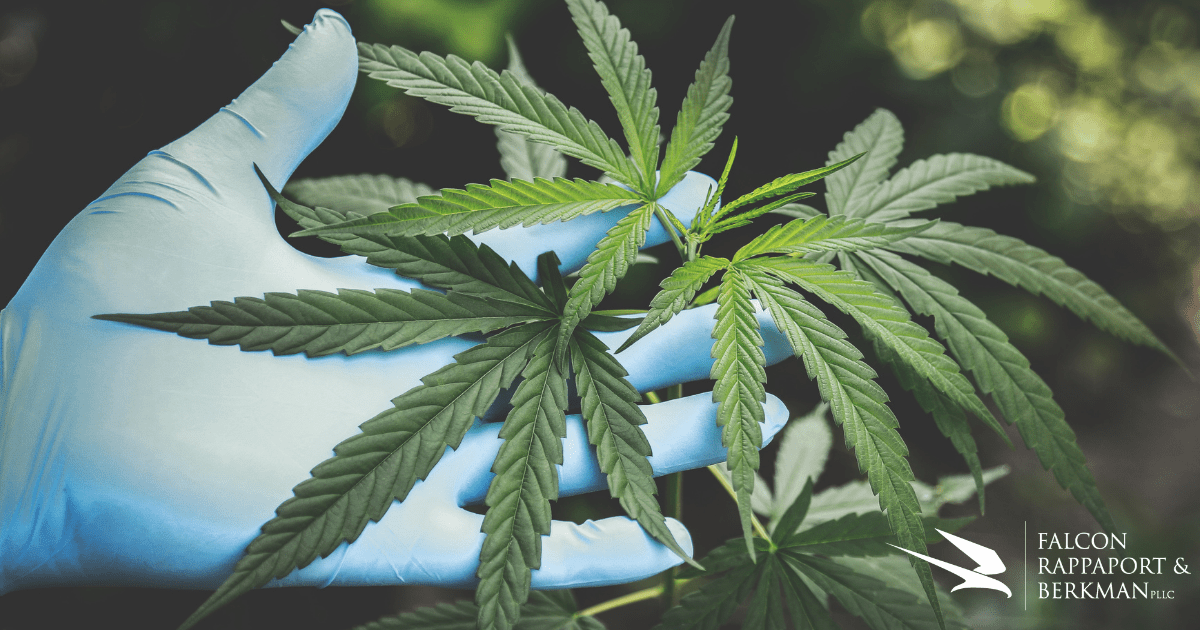Will Cuomo’s Impending Resignation Further Delay a Rollout of the Recreational Marijuana Program?
Will Cuomo’s Impending Resignation Further Delay a Rollout of the Recreational Marijuana Program?
By: Andrew P. Cooper, Esq., LL.M. and Terran Cooper
The Marijuana Regulation and Taxation Act (MTRA) created a first in the nation comprehensive regulatory structure to oversee the licensure, cultivation, production, distribution, sale and taxation of medical, adult-use, and cannabinoid hemp within New York State with the Office of Cannabis Management (OCM) at the helm. The Cannabis Control Board (CCB) was created to oversee the Office of Cannabis Management and will be responsible for implementing and regulating New York’s cannabis industry including registration, license, and/or permitting.
The discussion over the last few months has centered around the fact that New York State still hadn't named members or directors for its new OCM and CCB, causing concerns that the fledgling industry could face delays. A month ago, most industry experts believed that appointments would be made during the legislative session that ended in June, however, in light of Cuomo’s resignation before any such appointments could be made, this surely delayed the process by months if not longer.
The MRTA provides that the Governor appoints the chair of the CCB — who needs state Senate approval — along with two other members. The Senate and Assembly will each appoint one member. The Governor will also name the OCM's executive director, who also needs to be confirmed by the Senate. At this point, unless a special legislative session is called, in light of Gov. Cuomo’s resignation it is now relatively clear that the naming of CCB and OCM members or directions will likely have to wait until the next regular legislative session which starts in January 2022. Some experts suggest that regardless of when the rollout of the recreational marijuana program Governor Cuomo signed into law does commence, it could take up to two years for regulations created by the CCB to be finalized and implemented.
It's been suggested that these delays will mostly harm smaller operators in particular, including social equity applicants, who are planning to apply for licenses to operate cultivation facilities, shops, and other cannabis-related businesses. These businesses will now need to prepare for business in an even more uncertain regulatory environment and wait longer before they can begin sales. In a national market where Black and Latinx operators are currently barely a blip on the radar of cannabis income, it is pretty clear that any delay in establishing criteria for the application process will hurt smaller groups and social equity applicants more than larger companies who can better afford to wait this out.
In fact, New York remains the largest marketplace for black market cannabis activity in the U.S., and delays could further entrench and increase the value of this black market, potentially resulting in greater competition for the eventual legal adult-use market. It is also still uncertain if steps will be taken to incentivize black and grey market operators to join the legal adult-use market. These operators may feel inclined to continue illegal activity after what could be 2-3 years of very profitable activity with little fear of prosecution. The CCB and OCM must take great care in proceeding in order to ensure that the NY adult-use market lives up to its potential as a multi-billion dollar industry.
Other industry experts are suggesting that with Governor Cuomo out, the rollout process might speed up. The thinking behind this is that Cuomo was actually using the rollout and the appointment of the OCM and CCB members as a pawn for other political purposes thereby delaying the process. It is likely that additional pressure will land on incoming governor Kathy Hochul to make these appointments expediently.
Notwithstanding these delays, most companies considering getting more involved in the cannabis industry, a market that is expected to exceed $2 billion in annual sales in a few short years, have been preparing themselves for what is expected to be quite a vigorous application process by retaining legal counsel and/or a consulting firm to assist them with tasks such as due diligence, business formation, financial resources, and integrity issues before the State's rules are finalized.
More Questions? Contact Us!
Falcon Rappaport & Berkman LLP has the knowledge and experience necessary to guide you through legal cannabis matters. FRB’s Cannabis Practice Group is unique in that it brings together experienced professionals from several practice areas to provide a truly multi-specialty cannabis group. If you are interested in learning more about the MRTA, and what you can expect the application process to look like, please schedule a consultation. To set up a meeting with one of our attorneys, please call (212) 203-3255, email info@frblaw.com, or submit a request through the contact form below.
DISCLAIMER: This summary is not legal advice and does not create any attorney-client relationship. This summary does not provide a definitive legal opinion for any factual situation. Before the firm can provide legal advice or opinion to any person or entity, the specific facts at issue must be reviewed by the firm. Before an attorney-client relationship is formed, the firm must have a signed engagement letter with a client setting forth the Firm’s scope and terms of representation. The information contained herein is based upon the law at the time of publication.

